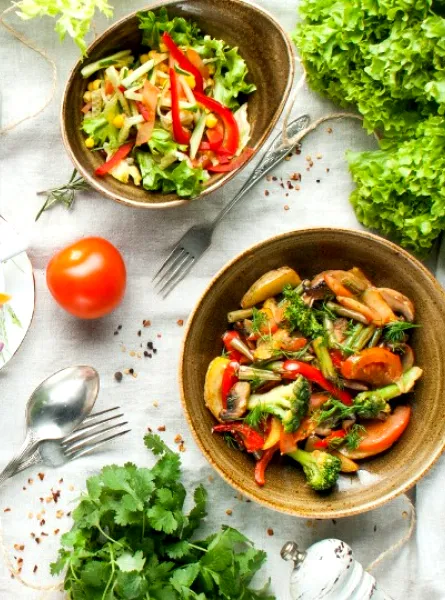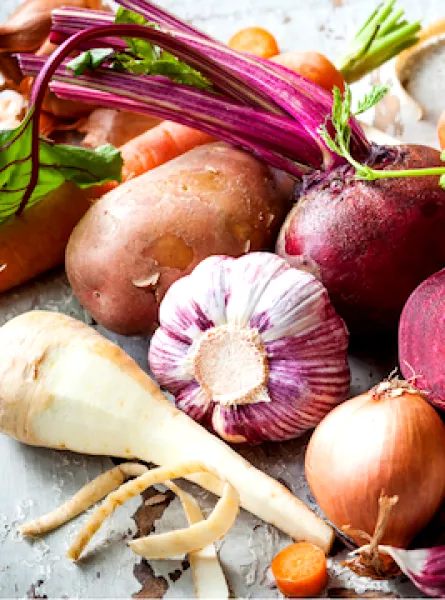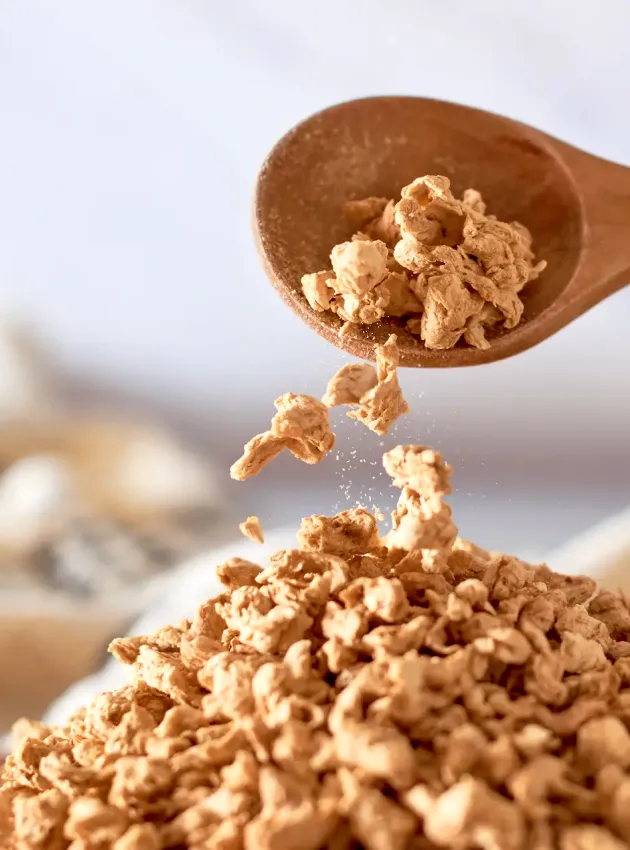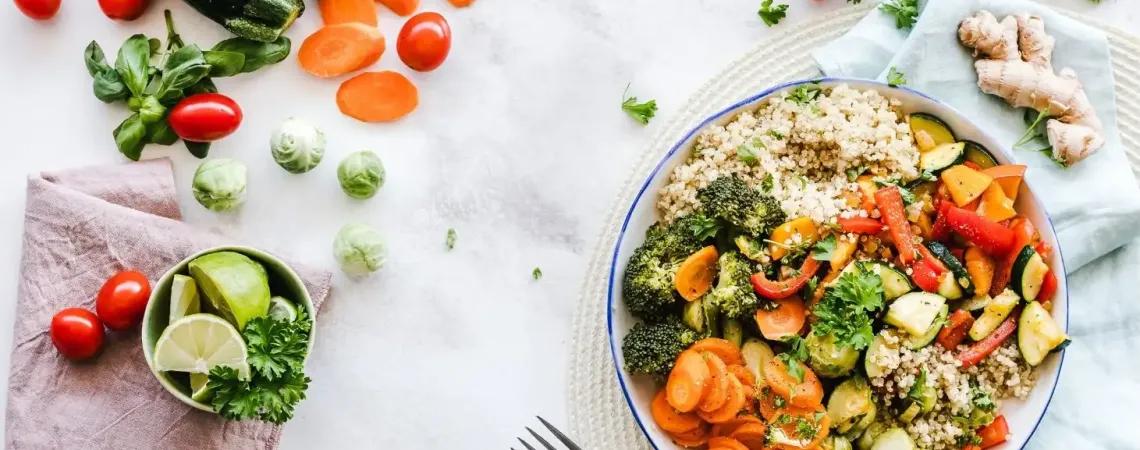
In this article:
Switching to a plant-based diet comes with a ton of perks—for your health, the planet, and animal welfare. But there’s one nutrient that deserves a closer look when you cut back on or ditch animal products entirely: vitamin B12. It’s not naturally found in unfortified plant foods, and trust us, you don’t want to skip it—it’s a big player in keeping your nerves firing, your red blood cells thriving, and your energy levels up.
Knowing how to get enough B12 is the secret to rocking a veggie diet without compromising your health!
1. What Is Vitamin B12 and Why Do We Need It?

Vitamin B12 (aka cobalamin) is a powerhouse that:
- Keeps your brain and nerves in top shape;
- Helps make red blood cells (the ones that carry oxygen through your body);
- Fuels your energy metabolism;
- Supports DNA production.
A B12 deficiency can leave you feeling wiped out, foggy, or numb, and might even lead to anemia or, in serious cases, permanent nerve damage.
2. Who’s at Risk of a B12 Shortfall?
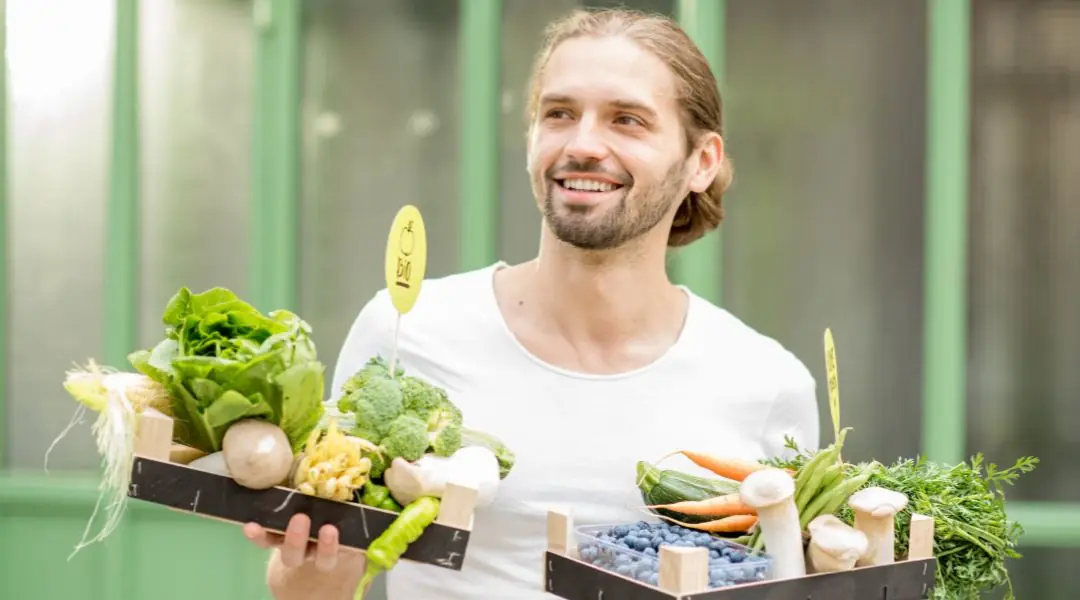
Vegans, who avoid all animal products, are at the top of the list. But strict vegetarians might also fall short if they’re not eating enough eggs or dairy.
Generally, omnivores (people who eat meat) do not usually have to worry about their vitamin B12 intake. Absorption can drop for folks over 50, those with digestive issues (like celiac or Crohn’s disease), or anyone on certain meds (think metformin or proton pump inhibitors).
3. Where Does Vitamin B12 Come From Naturally?
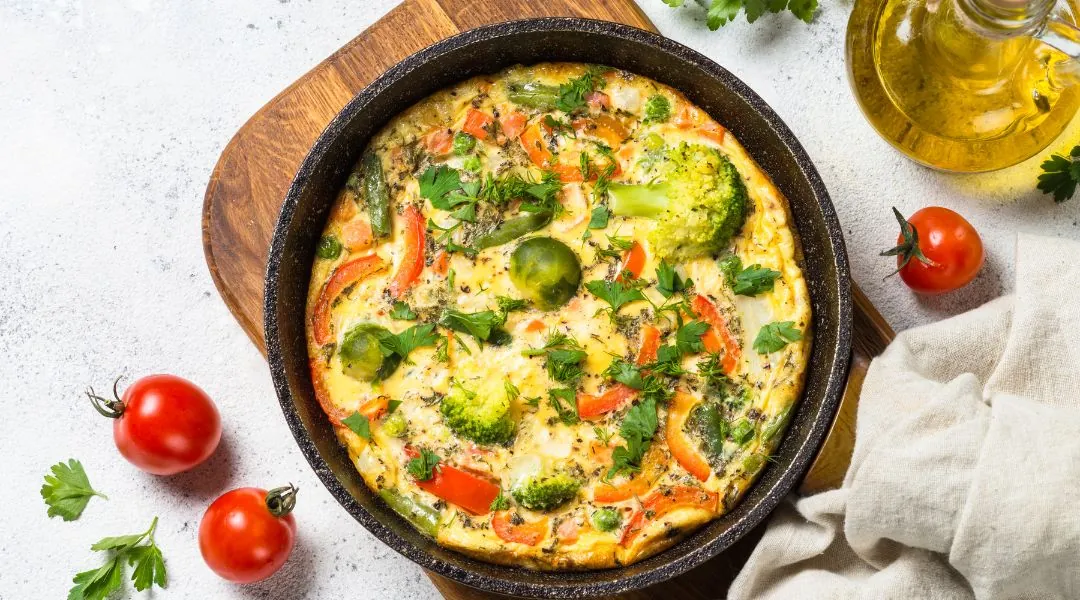
You’ll find B12 in animal-based foods like meat, poultry, fish, eggs, and dairy. Vegetarians who eat eggs and dairy can often meet some or all of their needs that way. Vegans, though? They’ll need to lean on fortified foods or dietary supplements since plants don’t naturally offer it up.
4. How to Include B12 in a Plant-Based Diet
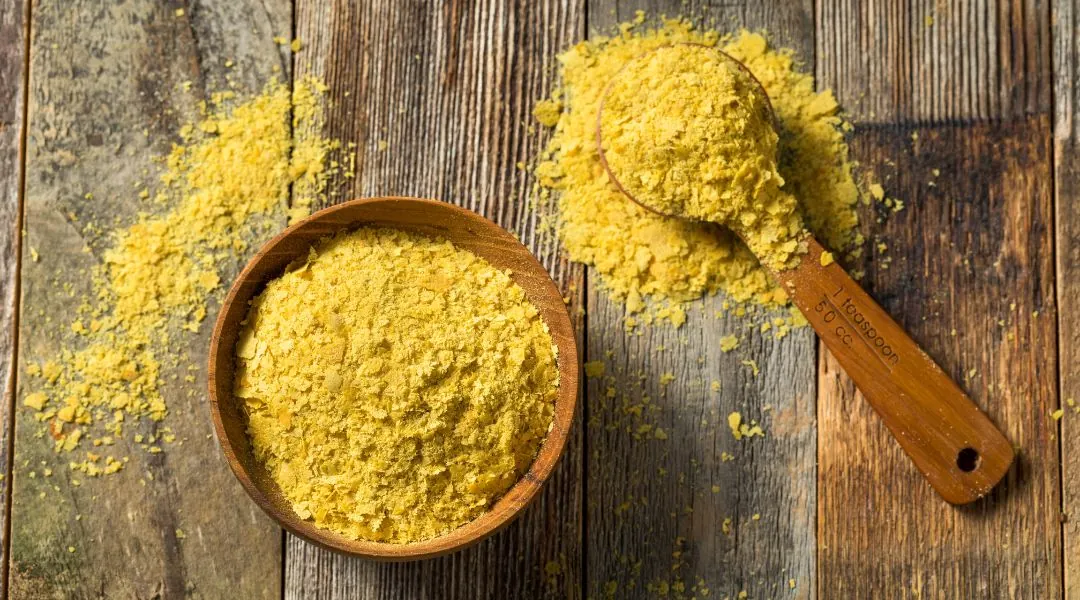
4. 1. Work It Into Your Daily Eats
If You Adopted a Vegetarian Diet: Make the Most of Animal-Based Options
Vegetarians can tap into these B12 sources:
- Eggs: Especially the yolk.
- Dairy: Milk, yogurt, cheese.
💡 Practical Ideas:
- Whip up a protein-packed veggie soup boosted with fortified nutritional yeast for a cheesy, nutrient-rich twist.
- Try this crustless quiche—perfect for lunchboxes—with eggs and fortified nutritional yeast.
While these foods might cover your needs, checking in with a dietitian who knows plant-based eating is a smart move to ensure you’re on track.
If You Adopted a Vegan Diet: Go for Fortified Plant Foods
Plant-based foods don’t naturally have vitamin B12 unless they’re fortified. Here’s what to add to your routine:
- Fortified plant-based drinks (soy, oat, almond)—great in smoothies, coffee, or muffin recipes.
- Nutritional yeast: Sprinkle fortified flakes on pasta, salads, soups, or even popcorn! It’s a game-changer in recipes too.
💡 Practical Ideas:
- Toss fortified nutritional yeast into this all-purpose tofu or a tasty tofu spread for sandwiches—perfect for wraps!
4.2. Pop a B12 Supplement if Needed
For vegans, supplements are often a must. You can grab them as tablets, chewables, or sublingual drops.
- To hit your needs: Aim for 25–100 µg daily, or go for a weekly dose of 2000 µg (or two 1000 µg doses).
Needs vary based on age, pregnancy, or health history, so chat with a dietitian to nail it down.
4.3. Keep Tabs With Regular Checkups
A blood test can confirm your B12 levels are where they should be. Talk to your doctor about setting up a check-in plan.
5. How a Registered Dietitian Nutritionist Can Help
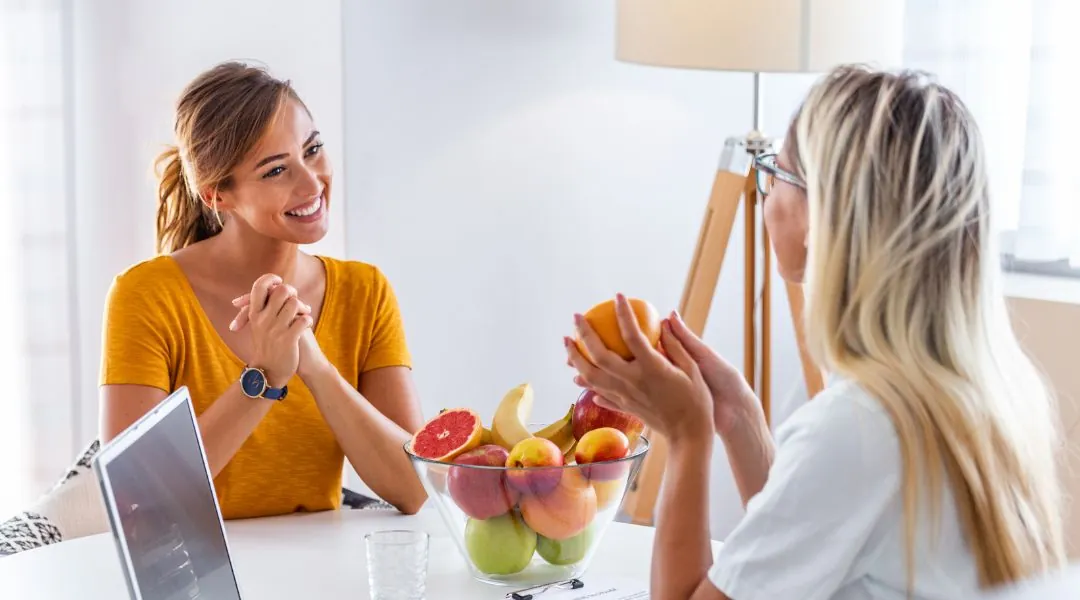
Going vegetarian or vegan takes a bit of know-how to cover all your bases. Vitamin B12 is one of the few nutrients you can’t get from unfortified plant foods. The good news? Fortified options, supplements, and expert advice make it totally doable.
A registered dietitian can:
- Assess your B12 and other nutrient intake;
- Guide you toward a simple, balanced diet that fits your needs;
- Help you pick the right supplement, if it’s part of the plan.
Whether you’re just dipping your toes into veganism or you’ve been at it for years, book a session with a dietitian nutritionist now for personalized support tailored to you!


